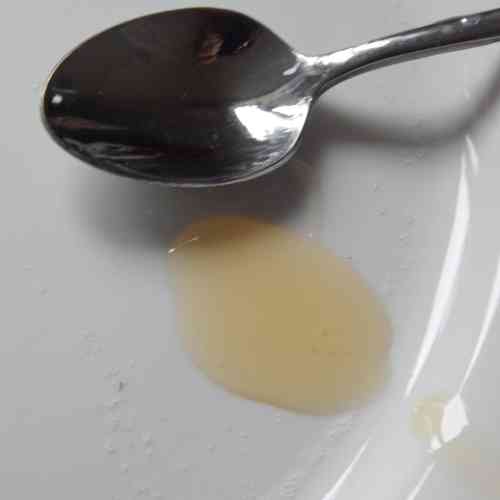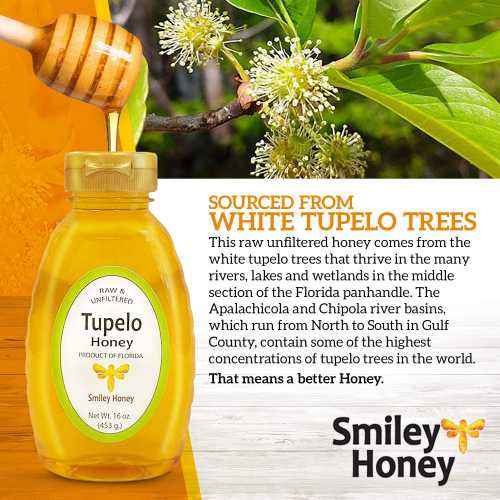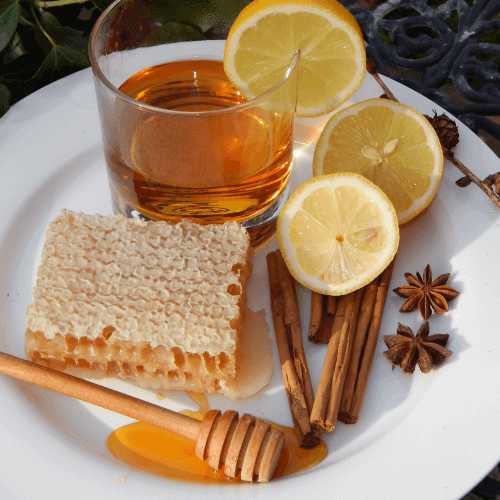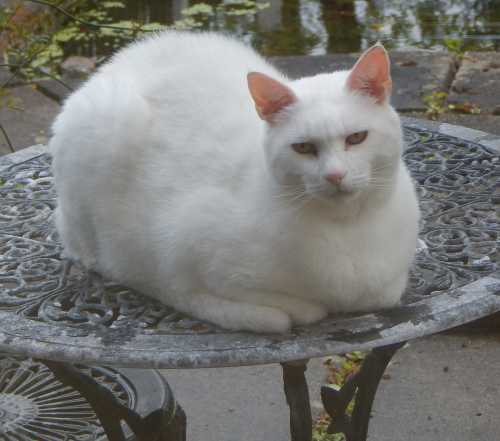What Is Tupelo Honey?
Updated: November 2023
Famous for its sweetness and a honey festival to celebrate it, you may be wondering about Tupelo honey. Here's some information I gathered to answer a few questions about this premium variety of honey.
What is Tupelo Honey and what makes it special?
The sweetness of honey comes from the sugar content of nectar gathered by bees.
Tupelo Honey is a distinct, sweet, premium-priced honey made by honey bees from the nectar they gather from the Tupelo tree.
There are a number of Tupelo tree species, but especially prized is honey which is made with nectar gathered from the White Tupelo tree (Nyssa ogeche). However, this tree is restricted to only a few geographical regions.
The flowers of the White Tupelo tree are in bloom from April to the end of May. The White Tupelo also produces fruits - ogeechee limes.
Where are White Tupelo Trees to be found?
So you may be wondering where White Tupelo trees grow, and whether or not you could add a specimen to your bee garden. Unfortunately the tree appears to be very picky about the kind of environment in which it will grow.
Both Tupelo Honey and the White Tupelo tree are particularly associated with Gulf County, Florida, where the tree grows in forests around the Dead Lakes and Apalachicola River region.
The seasonal flooding and damp soil conditions provide the ideal environment for the White Tupelo forests to thrive. In fact the word 'tupelo' comes from the language of a Native American tribe, known as the Muscogee (Creek) Nation, and it means 'swamp'.
In Gulf County, this extraordinary tree grows to about 50 to 70 feet in height.

Tupelo Honey is so prized in the region, that an annual Tupelo Honey festival usually takes place in May, hosted by the small community of Wewahitchka (although it was cancelled for 2020). At this festival, beekeepers from the region gather and sell this rare honey.
If you are looking to purchase Tupelo Honey, you might want to check whether it has been made by bees that gathered nectar mostly from White Tupelo trees.
What do flowers of the White Tupelo tree look like?
The delicate, inconspicuous blooms of the White Tupelo tree start as a small, pea-sized bud, from which many pollen-laden anthers burst out, tempting honey bees to the sweet nectar at the base of each fragile spike.
The fruits which follow the flower are much more showy, and are referred to as 'ogeechee limes' owing to their juicy, acidic flesh.
What makes Tupelo Honey special?
Apart from its comparative rarity, the honey is said to be very aromatic, with a light color.
Floral, fruity and spicy are words that may be used to describe the flavor. It is one of the honey varieties favored by mead makers.
In a sensory study conducted for the National Honey Board,
panelists ranked Tupelo Honey as having a high spicy, cinnamon aroma and flavor (Rtech
laboratories, 2001).
An analysis of Tupelo Honeys from 5 different locations in Gulf County, found 51 aromatic compounds, with 3 especially prominent:
| Aromatic Compound | Odor Description |
|---|---|
| E)-β-damascenone | Fruity, cooked apple, rose, floral |
| Eugenol | Spicy, clove aroma, with cinnamon and allspice nuances |
| Vanillin | Vanilla, sweet, creamy |
Furthermore, there may be aromatic compounds unique to Tupelo Honey, or at least, not common in other honey varieties.
For example:
- Guaiacol - smoky, spicy, medicinal, vanilla and with a woody nuance. Present in Tupelo honey, but not common in honeys generally.
- (E)-2-Nonenal - aroma of cucumber; aldehydic, with a citrus nuance. Possibly unique to Tupelo honey.
Finally, Tupelo Honey from the White Tupelo tree is always organic due to its habitat.
Van Morrison and 'Tupelo Honey'
In 1971, singer-songwriter, Van Morrison, released a song mentioning Tupelo Honey. Here is an extract from the lyrics:
"Tupelo Honey"
You can take all the tea in China
Put it in a big brown bag for me
Sail right around the seven oceans
Drop it straight into the deep blue sea
She's as sweet as tupelo honey
She's an angel of the first degree
She's as sweet as tupelo honey
Just like honey from the bee"
- by Van Morrison from "Tupelo Honey"
Ulee's Gold
In the 1997 movie “Ulee’s Gold,” Peter Fonda stars in the title role, and it's about a Wewahitchka beekeeper and his family.
Whilst producing the film, the director consulted the Lanier family, a third-generation beekeeping family based in Wewahitchka, as well as filming on location at the Lanier family's bee yards and swamp lands.
Some members of the Larnier family even appeared as extras in the film.
Resources
- Wetland hydrology and tree distribution of the Apalachicola River flood plain, Florida (usgs.gov)
- PHYSICOCHEMICAL AND FLAVOR CHARACTERIZATION OF TUPELO HONEY BY SAMANTHA RACHELLE GARDINER.
- www.thegoodscentscompany.com





